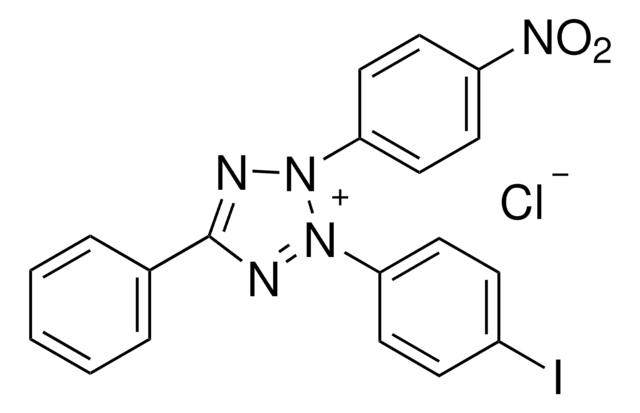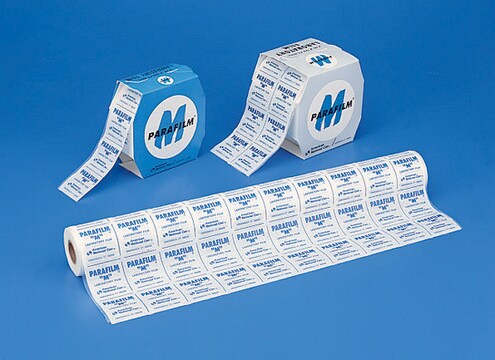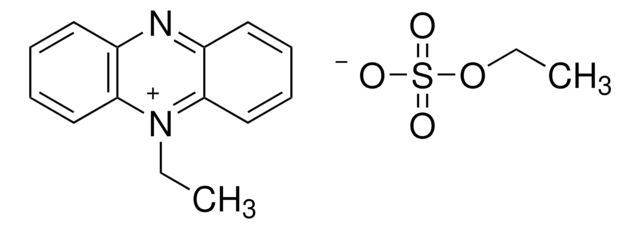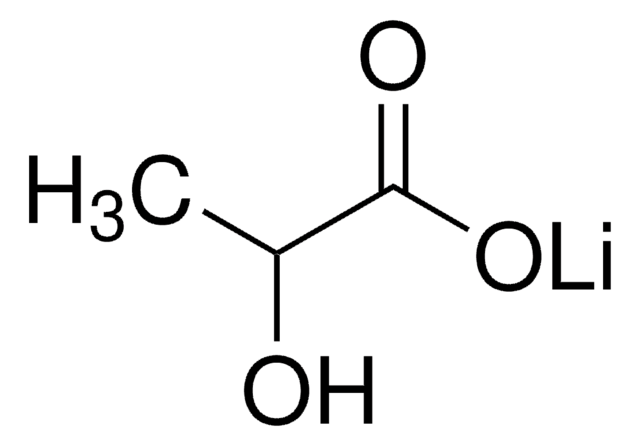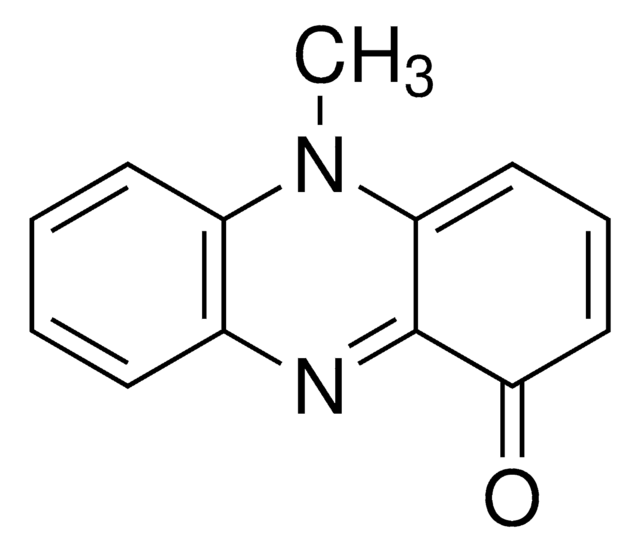P9625
Phenazine methosulfate
powder, electron acceptor
Synonym(s):
5-Methylphenazinium methyl sulfate, N-Methylphenazonium methyl sulfate, PMS
About This Item
Recommended Products
product name
Phenazine methosulfate,
form
powder
Quality Level
λ
0.01 g/L in H2O, 1 cm path
UV absorption
λ: 387.5 nm Amax
antibiotic activity spectrum
fungi
Mode of action
DNA synthesis | interferes
cell membrane | interferes
storage temp.
−20°C
SMILES string
COS([O-])(=O)=O.C[n+]1c2ccccc2nc3ccccc13
InChI
1S/C13H11N2.CH4O4S/c1-15-12-8-4-2-6-10(12)14-11-7-3-5-9-13(11)15;1-5-6(2,3)4/h2-9H,1H3;1H3,(H,2,3,4)/q+1;/p-1
InChI key
RXGJTUSBYWCRBK-UHFFFAOYSA-M
Looking for similar products? Visit Product Comparison Guide
General description
Application
Phenazine methosulfate has been used:
- as a component of succinate dehydrogenase enzyme substrate solution
- to induce superoxide radical generation in red blood cell suspensions and to study its influence on RBC deformability
- as a component of complex II histochemistry media
Biochem/physiol Actions
Storage Class Code
11 - Combustible Solids
WGK
WGK 3
Flash Point(F)
Not applicable
Flash Point(C)
Not applicable
Personal Protective Equipment
Regulatory Listings
Regulatory Listings are mainly provided for chemical products. Only limited information can be provided here for non-chemical products. No entry means none of the components are listed. It is the user’s obligation to ensure the safe and legal use of the product.
JAN Code
2016018:
P9625-BULK:
P9625-10G-PW:
P9625-5G:
P9625-1G:
P9625-25G-PW:
P9625-.5MG:
P9625-500MG:
P9625-10X.5MG:
P9625-25G:
P9625-10G:
P9625-VAR:
P9625-500MG-PW:
P9625-1G-PW:
P9625-5G-PW:
Certificates of Analysis (COA)
Search for Certificates of Analysis (COA) by entering the products Lot/Batch Number. Lot and Batch Numbers can be found on a product’s label following the words ‘Lot’ or ‘Batch’.
Already Own This Product?
Find documentation for the products that you have recently purchased in the Document Library.
Customers Also Viewed
Articles
DISCOVER Bioactive Small Molecules for Nitric Oxide & Cell Stress Research
Our team of scientists has experience in all areas of research including Life Science, Material Science, Chemical Synthesis, Chromatography, Analytical and many others.
Contact Technical Service


